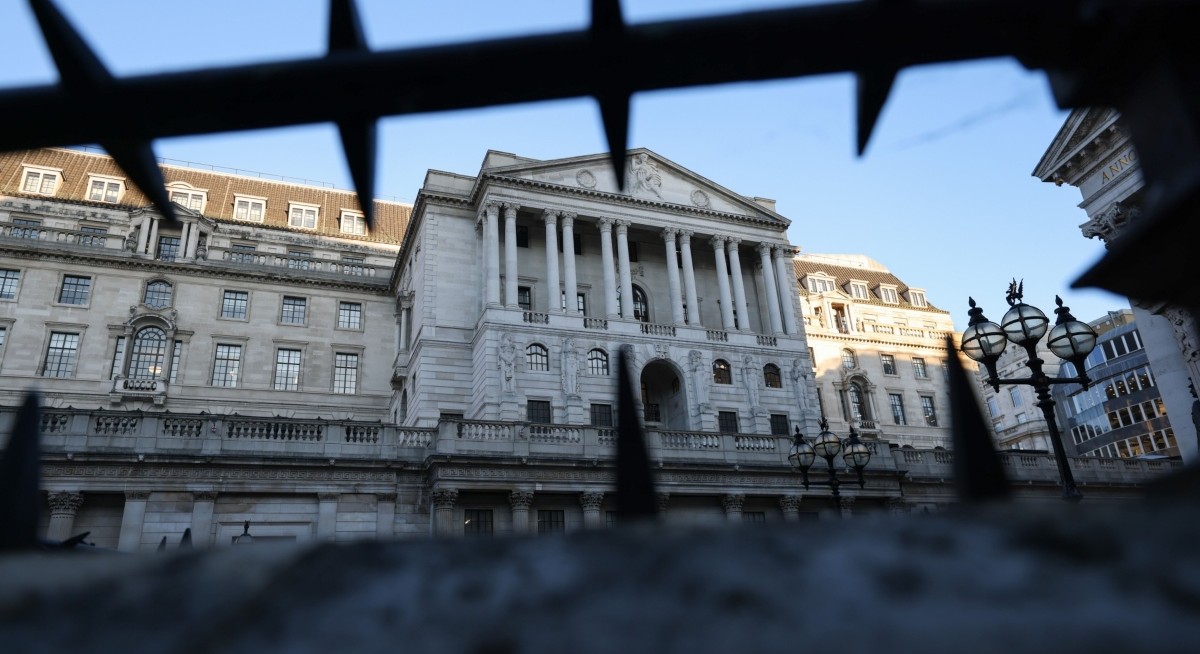“The majority of the committee judged that, should the economy evolve broadly in line with the November Monetary Policy Report Projections, further increases in bank rate may be required,” Governor Andrew Bailey wrote in a letter to Chancellor of the Exchequer Jeremy Hunt.
The BOE’s half-point increase was in lock-step with moves of the same size from the US Federal Reserve last night and the European Central Bank later Thursday.
Divisions on the BOE’s nine-member Monetary Policy Committee along the bank’s estimate that the UK is already in recession may further slow the pace of rate rises in the coming months. Governor Andrew Bailey said risks to the outlook for inflation remain tilted to the “upside” and that the BOE remains determined to bring inflation back to its 2% target.
See also: China says trade talks with US set for Friday in Malaysia
“Inflation may be coming down but it would be premature for the BOE to claim victory,” said Karen Ward, chief market strategist EMEA at JP Morgan Asset Management. “The BOE may be able to moderate the pace and speed of interest rate hikes, but we believe we are at least 100bps from the peak.”
UK money market traders pared rate hike wagers, pricing interest rates will rise to 4.52% by August compared to 4.61% before Thursday’s half-point increase. The pound fell against both the euro and the dollar.
What Bloomberg Economics Says...
See also: Navigating geoeconomic risks: Asean businesses remain resilient but urge structural change
Hunt appeared to take pressure off the BOE to raise rates in his first exchange of letters with the governor since he became chancellor. His predecessors had urged the bank to act “forcefully” against rising inflation — an implicit direction that the government was watching the committee closely. Hunt dropped that language.
“I know that the MPC will continue to take the action necessary,” Hunt wrote. The letters are triggered every quarter if inflation strays more than 1 percentage point away from the 2% target.
In a statement from the Treasury after the decision, Hunt acknowledged higher rates will be difficult for many households.
“I know this is tough for people right now, but it is vital that we stick to our plan, working in lockstep with the Bank of England as they take action to return inflation to target,” Hunt said. “The sooner we grip inflation the better.”
The BOE’s MPC split three ways on the decision. Six members including Bailey voted for the half-point rise. Catherine Mann favored three-quarters of a point, while Silvana Tenreyro and Swati Dhingra backed leaving rates unchanged.
Minutes of the meeting showed the majority of policy makers considered “the labour market remained tight, and there had been evidence that inflationary pressures in domestic prices and wages that could indicate greater persistence and thus justified a further forceful monetary policy response.”
For Dhingra and Tenreyro, previous rate rises had yet to have a full impact on the economy and were “more than sufficient” to bring inflation back to target.
To stay ahead of Singapore and the region’s corporate and economic trends, click here for Latest Section
The panel dropped guidance that it issued in November, when it said the path for interest rates implied by financial markets was too aggressive. The minutes said the majority of the panel now believe further increases in bank rate might be required — if the economy evolves in line with its November forecast.
“Inflation is too high,” Bailey said in a webcast message posted by the BOE. “We think it will fall sharply from the middle of next year. I know that higher interest rates has a real impact on people’s lives. By raising interest rates we can bring inflation down sooner and help the economy begin to grow and prosper once more.”
Officials at the BOE estimate the economy is slightly stronger than it anticipated in November. Gross domestic product in the fourth quarter probably will fall 0.1% following a decline of 0.5% in the third quarter.
The government’s fiscal package released last month will support the economy next year but depress output in three year’s time, the BOE said. GDP will be 0.4% stronger at the end of 2023 than previously forecast, but it will be 0.5% weaker at the end of 2025, according to the central bank’s estimates.
The government’s cap on energy bills from April will bring headline inflation down by 0.75 of a percentage point in the second quarter, the BOE said.
The BOE is dealing with the highest level of inflation in four decades and signs that it is becoming embedded in wage-setting. That has led to the fastest monetary tightening cycle since the late 1980s.
The BOE also said:
- It will publish a market notice at 6 pm Friday outlining the progress of gilt sales under its quantitative tightening program
- the pace of its corporate bond sales is running ahead of schedule, which “would permit an earlier unwind of the portfolio than initially anticipated”
- QT sales and redemptions have reduced the BOE’s stock of bonds by GBP44 billion ($73.3 billion) this year



